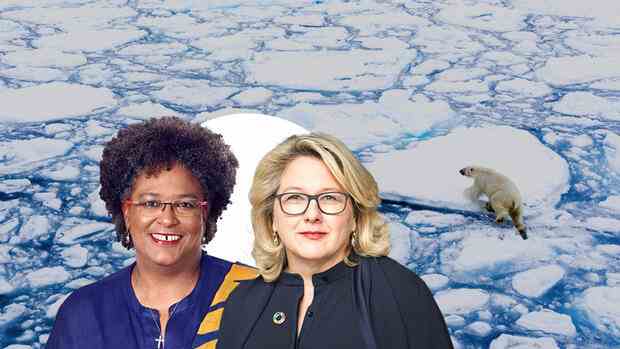We have to face an uncomfortable truth – and we have to act. The impact of human activity on our planet poses a threat to livelihoods and threatens to destroy decades of human development progress. Structural changes are needed to ensure the survival and prosperity of humanity and the planet.
Declining fish stocks, thawing permafrost, rising antibiotic resistance and the loss of tropical rainforest are just a few examples of how we are eroding the very foundations of our development.
While acute catastrophes usually attract the most attention, the gradual depletion of precious natural resources does not make the headlines. In the process, it has become a chronic burden for the world’s poorest.
The destruction of our natural livelihoods deepens global economic inequality and social exclusion. It undermines the 2030 Agenda for Sustainable Development principle of leaving no one behind.
It hinders poverty reduction and broad-based economic growth, damages social cohesion in rich and poor countries and threatens global security. No country can solve these cross-border problems alone. They are also growing out of an economic system that has proven more fragile than many realised. The current system cannot adequately absorb risks.
Investing in sustainability and resilience
The world needs a global system that creates resilience, promotes sustainability and absorbs shocks. To achieve this, the world community could take concrete steps this year, beginning with the spring meeting of the International Monetary Fund (IMF) and the World Bank.
Declining fish stocks, thawing permafrost, rising antibiotic resistance and the loss of tropical rainforest are just a few examples of how we are eroding the very foundations of our development.
(Photo: dpa)
We, the shareholders of the World Bank, last October called for reform and modernization of the bank. Sustainability and resilience should become core goals of the institution and determine the conceptual and operational work of the bank.
We know that for every dollar we invest in sustainability and resilience today, we save four to seven dollars later. For this reason alone, we must anchor appropriate incentives for sustainability and resilience in lending.
Many reforms and investments can have positive cross-border consequences. More national investments are therefore needed in global public goods and in nature conservation.
We must also exhaust all the financing capacities of the multilateral development banks. The key is to leverage the capital available while maintaining the AAA rating and countercyclical responsiveness of these institutions. Concrete proposals are on the table for this.
>> Read here: How Germany wants to win the race with China in Africa
The G20 capital adequacy review has shown that the multilateral development banks are becoming more willing to take risks and can mobilize much more capital as a result, for example by lowering the minimum equity ratio.
Each individual development bank can also do more to fully utilize its balance sheet. Through guarantees, they can significantly reduce the cost of private investment in the transition to low-carbon energy, transport and agriculture in developing countries. If these investments are not made cheaper, we will massively miss the 1.5 degree target for global warming and thus trigger chain reactions.
Include clauses on natural disasters and pandemics
We also welcome proposals that call for the issuance of non-voting hybrid capital to enable lending at even lower interest rates, either through a “coalition of the willing” or through sales to private investors.
The IMF’s new Resilience and Sustainability Trust is based on this premise and represents a promising first step in maximizing the effectiveness of SDR allocations.
(Photo: dpa)
We also need to review our options for passing on Special Drawing Rights (SDR, the IMF’s reserve currency) to strengthen the capital stock of international financial institutions. The IMF’s new Resilience and Sustainability Trust is based on this premise and represents a promising first step in maximizing the effectiveness of SDR allocations.
We call on the multilateral development finance institutions to present further options for using SDRs. The African Development Bank and the Inter-American Development Bank have already started to do this.
Finally, we urge all lenders and borrowers to include natural disaster and pandemic clauses in loan agreements. In the event of a crisis, such clauses make it possible to temporarily reduce debt service. In this way, you help affected countries at times when the need is greatest.
There is a clear scientific consensus on climate change and biodiversity loss. We urgently need to incorporate this into a new economic model for the international financial institutions.
At the spring meeting in April, the World Bank must recognize that poverty can only be combated if we find answers to global challenges. In the face of an existential climate crisis, sustainability and resilience are the only viable way. We need to modernize our institutions.
The authors:
Mia Amor Mottley is Prime Minister of Barbados. Svenja Schulze is Federal Minister for Economic Cooperation and Development. Both represent their country at the World Bank as governor.
More: Team Germany: How the Foreign Minister is trying to break new ground in climate policy
